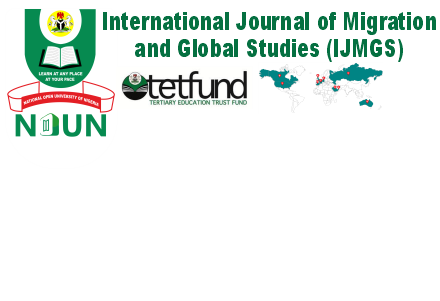This paper using doctrinal, case study and comparative legal approaches examines whether international migration and economic globalisation facilitates laundering of proceeds of corruption in Nigeria. To achieve this overarching aim, relevant concepts: proceeds of corruption, international migration, economic globalization and laundering were delineated, and also the paper examines the nexuses between corruption and laundering on first part and laundering of proceeds of corruption and international migration and economic globalisation on the second part. Thereafter, the legal frameworks on laundering of proceeds of corruption, gaps in the legal and enforcement regimes and the legal and enforcement imperatives were thoroughly examined. The findings of the research reveal that apart from international migration, economic globalization is a major facilitator of laundering of proceeds of corruption in Nigeria because of the existing legal gaps and the three failures (3Fs) of the enforcement regime which this research also identified are major enablers. On the basis of the findings, the paper identifies the legal and enforcement imperatives and made far reaching recommendations which includes the amendments of the anti-money laundering laws, and the conversion of the three failures (3Fs) of the enforcement regime to three successes (3Ss).
